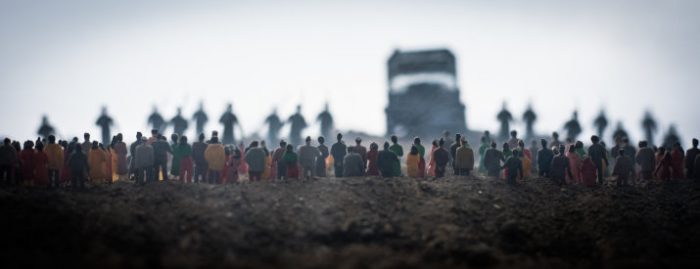Whilst surveying the daily news headlines, it has become all too common to see stories about the commission of international war crimes such as the killing or torture of civilians or prisoners, the use of child soldiers, attacks on hospitals, educational or religious institutions.
Whilst these may be the most horrific crimes imaginable, another disturbing factor is that it is often not clear who will be held accountable for the crimes, and who will bring them to justice.
The International Criminal Court provides some insight into how it aims to address this problem, collaborating with its States Parties to hold international war criminals accountable and prevent these crimes from occurring.
The International Criminal Court (ICC)
The International Criminal Court (ICC) investigates and tries individuals charged with the most serious crimes within the context of international criminal law, including war crimes.
The ICC is governed by an international treaty called the Rome Statute, to which 123 countries (including Australia) are States Parties.
The International Criminal Court Act 2002 facilitates Australia’s compliance with its obligations under the Rome Statute, including those relating to the provision of investigative assistance and the arrest and surrender of suspects.
The crimes over which the ICC can exercise jurisdiction under the Rome Statute (which in addition to war crimes include genocide and crimes against humanity) are criminalised under Australia’s domestic law.
The ICC also has jurisdiction over the crime of aggression originating from amendments to the Rome Statute adopted in 2010. Australia has not ratified the 2010 amendments, and therefore the crime of aggression is not criminalised under Australia’s domestic law.
Jurisdiction
Australia has primary jurisdiction over war crimes alleged to have been committed in Australian territory or by Australian citizens.
If Australia is investigating or prosecuting a war crime it cannot be pursued by the ICC, unless Australian authorities are unwilling or genuinely unable to carry out the investigation or prosecution.
What are the different types of war crimes?
In Article 8 of its Elements of Crimes document, the ICC lists the different types of war crime which are covered by the Rome Statute, including but not limited to the war crimes of:
- Wilful killing, torture, mutilation or inhumane treatment
- Biological, medical or scientific experiments which cause death or seriously endanger lives
- Destruction and appropriation of property
- Compelling service in hostile forces
- Denying a fair trial
- Sentencing or execution without due process
- Unlawful deportation, transfer or confinement
- Taking hostages
- Attacking civilians or civilian objects
- Attacking personnel or objects involved in a humanitarian assistance or peacekeeping mission
- Improper use of a flag of truce or distinctive emblems of the Geneva Conventions
- Employing poison, prohibited gases, liquids, materials or devices
- Rape, sexual slavery or enforced prostitution
- The use of child soldiers
A number of common elements that are required to be present in addition to committing the above acts include:
- The victim/s were protected under one or more of the Geneva Conventions of 1949
- The perpetrator was aware of the factual circumstances that established that protected status
- The conduct took place in the context of and was associated with an international armed conflict
- The perpetrator was aware of factual circumstances that established the existence of an armed conflict
The document further expands on additional specific elements that need to be present per crime type.
Impact on Australia’s legal system
The Australian Government Attorney-General’s Department is required to report annually on the operation of the International Criminal Court Act 2002, the operations of the ICC and the impact of the operations of the ICC on Australia’s legal system.
In recent reports, it has been found that “the operations of the ICC had no discernible impact on Australia’s legal system” and that “the future impact of ICC operations depends on the number of active prosecutions and investigations undertaken as well as the number and nature of requests for assistance received by Australia.”



